| Umělec magazine 2010/1 >> The places and movements of Vacláv Bělohradský | List of all editions. | ||||||||||||
|
|||||||||||||
The places and movements of Vacláv BělohradskýUmělec magazine 2010/101.01.2010 Tereza Stockelová | en cs de |
|||||||||||||
|
Several observations from the late modern era
In Prague, Václav Bělohradský moves among many places, contexts, and generations. A column in a newspaper or an essay in its cultural section, the occasional university course or advising student theses, a television debate, lecture, a discussion with politicians. In the early 1990s, when Bělohradský began to travel regularly to Prague from Italy, where he has been living since 1970, he was primarily active as a liberal on the right-hand side of the political spectrum. He believed in a standard parliamentary system and “capitalism and civic virtues” – the title of his book composed of newspaper columns – and energetically promoted them all. At the same time, he provoked his academic colleagues with his post-modern operations. At a time when many had been hoping that they could finally establish the social sciences and humanities on solid non-political foundations, they learned that the foundations are no more than loose sand and that politics is everywhere. In the second half of the 1990s, Bělohradský lost faith not only in post-socialist capitalism, but in capitalism as such; he “became a dissident again.” Capitalism today is incapable of solving our problems (the environment, global inequality); in fact, it is at their core. Instead of writing columns for right-leaning newspapers, he began to write essays for the cultural sections of a left-wing paper, some of which can be found in his book Society of Uneasiness. In the 2006 elections, he supported the Green Party, saying that he hoped it would remain something between political party and social movement. In Prague, Václav moves purposefully, independently, and quickly. Prepare, conclude, inspect, meet, appraise, formulate. When we meet for a beer, he soon has to run off to somewhere else. Václav Bělohradský’s second home is in Italy, where he spent more than 20 years at the University of Genoa. Today, he is in Trieste and Gorizia, where I had the chance to see him while attending a conference at the local university. I remember him showing me around Gorizia on the frame of a bicycle, having breakfast at a café (reading the newspaper, croissant and cappuccino, with Václav later ordering a piccolo without milk and pouring it into his cappuccino cup, as if not wanting to waste the last remains of milk stuck to the sides), the students in the street and the way life revolved around the university, defined by its atmosphere and time. (Václav once told me that when he comes to a new town, he always first goes to look at the university, which he then uses as his reference point.) There also is the disgust with the Berlusconization of Italy, the expansion of universities into degree-factories and its excessive accommodating of regional governmental and employers’ interests, “ethno(techno)cracy.” In my short stay, there also was life on the coast – far more fluid, fragrant, and propitious than Prague’s nervous post-socialist tic. And yet, Prague and Gorizia are not opposites. They are two faces of an engagement in public and university life that aims to reshape society. I have experienced Václav several times outside of these two worlds or on the road between them. It would be naïve to think that a person is more himself when he is outside of the public realm. Václav Bělohradský lives the public and university life; without them, he is inconceivable as a person. At the same time, you cannot say that he does not talk about himself in these arenas. He does far more often than the great majority of academics. Society of Uneasiness is about emotions – which he repeatedly described as his own. Nevertheless, meeting Václav outside and between these worlds is a special experience that opens up new dimensions of his personality where slowness can reign over movement and action, observation over the need to form and formulate, childhood and old age over adulthood. The Chinese would perhaps call it a space for yin energy. The trip and the commute between Italy and Prague (and France and Germany before that) would seem to have created a space for slowing down and defocusing, while being present in his place of work creates the need for movement and focus. Perhaps even uneasiness (discomfort) contains within it a certain comfort in this sense.
01.01.2010
Recommended articles
|
|||||||||||||
|
04.02.2020 10:17
Letošní 50. ročník Art Basel přilákal celkem 93 000 návštěvníků a sběratelů z 80 zemí světa. 290 prémiových galerií představilo umělecká díla od počátku 20. století až po současnost. Hlavní sektor přehlídky, tradičně v prvním patře výstavního prostoru, představil 232 předních galerií z celého světa nabízející umění nejvyšší kvality. Veletrh ukázal vzestupný trend prodeje prostřednictvím galerií jak soukromým sbírkám, tak i institucím. Kromě hlavního veletrhu stály za návštěvu i ty přidružené: Volta, Liste a Photo Basel, k tomu doprovodné programy a výstavy v místních institucích, které kvalitou daleko přesahují hranice města tj. Kunsthalle Basel, Kunstmuseum, Tinguely muzeum nebo Fondation Beyeler.
|








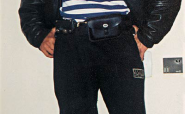
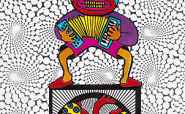
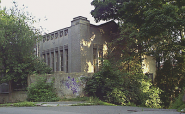
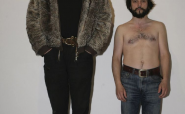












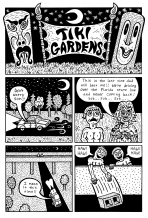
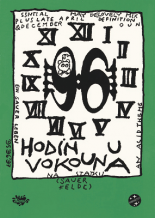
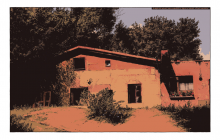
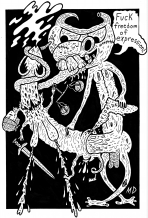


 We Are Rising National Gallery For You! Go to Kyjov by Krásná Lípa no.37.
We Are Rising National Gallery For You! Go to Kyjov by Krásná Lípa no.37.
Comments
There are currently no comments.Add new comment